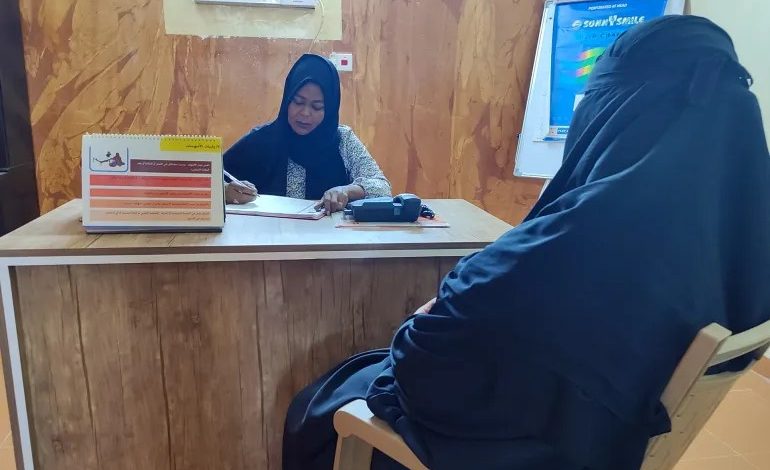The Fate of Sexual Violence Victims Two Years After the Sudan War

Sudan Events – Agencies
With a trembling, broken voice and shaking hands, the 16-year-old victim “M.M” sits in confusion, her face marked by deep unanswered questions.
Telling her heartbreaking story, she recounts how February 16th became a tragic date in her life. Two members of the Rapid Support Forces (RSF) militia confronted her in East Nile, Khartoum, accusing her of hiding a weapon. They entered her home, searched it, but found nothing.
The following day, they returned — this time four men — shot her aunt’s husband, took her father to another house, and then accused them of espionage. They shot her father and abducted her to the Al-Fayhaa area.
Taking a deep breath, she continued in a broken voice: “I was taken to Al-Azhari area in southern Khartoum and detained in a house in Block 12 for a month and three days. Every time I tried to escape, they would catch me and assault me as punishment.”
Speaking to Al Jazeera Net, she said she was assaulted three times before she finally escaped during Ramadan on the 22nd. Her kidnapper had locked the main door securely, but after RSF security guards fled amid the Sudanese army’s advance, she managed to escape through a back door. A woman helped her flee to other areas until she was reunited with her family.
An Initiative for Healing
Dr. Lubna Ali Mohamed, head of the national “Bit Makali” Organization and an official at the Aman Center for Survivors, stated that the center shelters 35 survivors of sexual violence — most of whom have been rehabilitated. Currently, 12 survivors remain, receiving healthcare, community services, and psychological counseling.
Speaking to Al Jazeera Net, Dr. Lubna said that there are 1,600 survivors of sexual violence from the Sudan war. Her organization is working to rehabilitate and train them in various skills. The center offers healthcare, psychological support, social, legal, and economic services, along with group therapy and counseling sessions.
She added that survivors arrive at the center in a dire psychological state due to the assaults. The center receives five categories of sexual violence survivors:
Kidnapped victims
Victims of gang rape
Victims of forced marriages
Students who were raped
Victims coerced into collaboration, forced by RSF fighters to cooperate, leading to their rape and forced drug injections.
Dr. Lubna explained that she cannot provide full services and comprehensive care to all survivors across Sudan, as the work is still in its early stages, facing major financial challenges and daily struggles to meet basic needs, especially in the absence of stable funding. She announced plans to establish four main centers across Sudan to accommodate survivors and provide psychological and social support.
Sexual Violence as a Weapon
Salima Ishaq, head of the Unit for Combating Violence Against Women and Children, told Al Jazeera Net that the number of rape and sexual violence victims up to last March reached 1,138 cases. However, this figure does not include incidents at Zamzam camp and other areas around Khartoum due to the shutdown of referral hospitals.
She confirmed that there are weaknesses in legal referrals due to fear of social stigma, and that society often does not pay attention unless pregnancy is involved.
Salima added that a new cooperation framework was signed between her unit and the UN Special Representative on Sexual Violence in Conflict, Pramila Patten, during her visit to Sudan from April 13–17, aiming to ensure that perpetrators do not escape justice.
Salima emphasized that “the RSF uses sexual violence as a weapon against civilians,” and that they often escape punishment because such acts are systematically committed as part of their warfare tactics.
She stressed that the RSF has engaged in various forms of sexual violence, including sexual slavery, forced pregnancy, forced marriage, abduction, and human trafficking — all of which will have lasting effects on individuals and society.
Human Rights
Meanwhile, the head of the Sudanese National Commission for Human Rights, Mawlana Jumaa Al-Wakeel, explained that the ongoing war has produced many female victims of sexual violence, with the numbers continuing to rise as the conflict persists.
He pointed out that what happened last week at the Zamzam and Abu Shouk displacement camps adds to the ongoing violations against the most vulnerable groups in society.
Al-Wakeel stated that the Commission is working to document these violations, raise local and global awareness, and ensure that perpetrators are held accountable. They are coordinating with relevant authorities to provide medical, psychological, and humanitarian support to the victims.
He told Al Jazeera Net that they focus on all violations against civilians, urging authorities to fulfill their role in providing humanitarian assistance.
The Commission also shares its findings with international organizations like Human Rights Watch, Amnesty International, the Human Rights Council in Geneva, and the UN High Commissioner for Human Rights, among others.
Source: Al Jazeera Net



